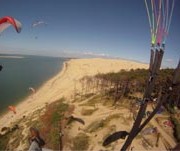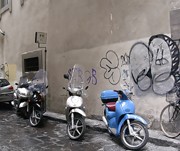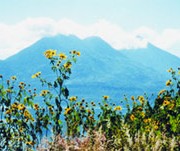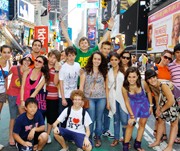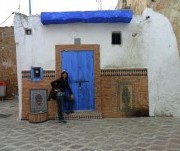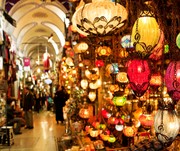Test your fluency with these French tongue-twisters!
A tongue twister focuses on different combinations of sounds that are difficult to pronounce one after the other in quick succession. It can also teach you some new words, not all of which will necessarily be immediately useful, but which could come in handy one day.
These tongue-twisters start with different but easily confused consonant sounds.
Les chaussettes de l’archi-duchesses sont-elles sèches, arch-sèches?
Are the archduchess’ socks dry, very dry?
Un chasseur sachant chasser sait chasser sans son chien.
A hunter who knows how to hunt knows how to hunt without his dog.
Ce chasseur sait chasser sans son chien dit le sage garde-chasse, chasseur sachez chasser sans chien !
This hunter can hunt without hounds says the wise hunting guard, hunters know how to hunt without hounds.
In these tongue-twisters most of the words start with the same consonant sounds followed by different vowel sounds.
Combien sont ces six saucissons-ci?
Ces six saucissons-ci sont six sous.
Si ces six saucissons-ci sont six sous, ces six saucissons-ci sont trop chers.
How many sous are these six sausages?
These six sausages are six sous.
If these six sausages are six sous, these six sausages are too cheap.
Si six scies scie six-cent-six scies, ces six-cent-six scies seront sciés.
If six saws saw six hundred six saws, those six hundred six saws will be sawed.
Babette a fait bombance à bord du bateau de Bob.
Babette had a beanfeast on board bob’s boat.
Dans ta tente ta tante t’attend.
Your aunt’s waiting for you in your tent.
Fruits frais, fruits frits, fruits cuits, fruits crus.
Fresh fruit, fried fruits, cooked fruit, raw fruit.
La pipe au papa du Pape Pie pue.
Papa’s pipe of Pope Pius pongs.
Lulu lit la lettre lue à Lili et Lola alla à Lille où Lala lie le lilas.
Lulu reads the letter read by Lili and Lola went to Lille where Lala binds the lilac.
Bonjour Madame Sans-Souci. Combien sont ces six saucissons-ci et combien sont ces six saucissons-là?
Six sous Madame sont ces six saucissons-ci et six sous aussi sont ces six saucissons là !
Hello Madame Sans-Souci. How much are these six sausages and how much are those six sausages?
Six sous Madam are these six sausages and six sous are those six sausages also!
More French tongue-twisters can be found at:
https://french.about.com/cs/francophonie/a/tonguetwisters.htm
https://phonetique.free.fr/indexvir.htm
Cactus Language offer French language courses in the UK, New York, France and Canada!

